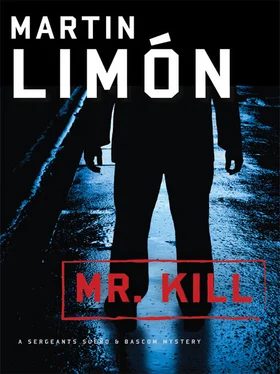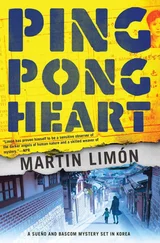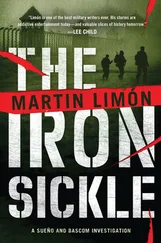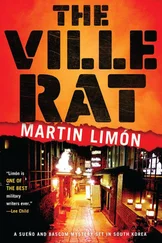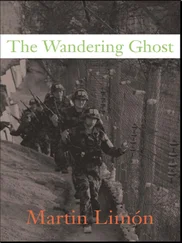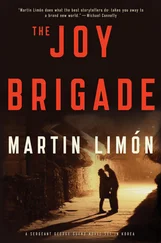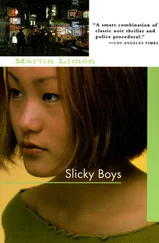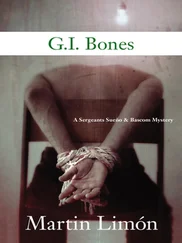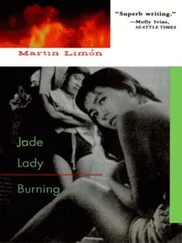Martin Limon - Mr. Kill
Здесь есть возможность читать онлайн «Martin Limon - Mr. Kill» весь текст электронной книги совершенно бесплатно (целиком полную версию без сокращений). В некоторых случаях можно слушать аудио, скачать через торрент в формате fb2 и присутствует краткое содержание. Жанр: Полицейский детектив, на английском языке. Описание произведения, (предисловие) а так же отзывы посетителей доступны на портале библиотеки ЛибКат.
- Название:Mr. Kill
- Автор:
- Жанр:
- Год:неизвестен
- ISBN:нет данных
- Рейтинг книги:4 / 5. Голосов: 1
-
Избранное:Добавить в избранное
- Отзывы:
-
Ваша оценка:
- 80
- 1
- 2
- 3
- 4
- 5
Mr. Kill: краткое содержание, описание и аннотация
Предлагаем к чтению аннотацию, описание, краткое содержание или предисловие (зависит от того, что написал сам автор книги «Mr. Kill»). Если вы не нашли необходимую информацию о книге — напишите в комментариях, мы постараемся отыскать её.
Mr. Kill — читать онлайн бесплатно полную книгу (весь текст) целиком
Ниже представлен текст книги, разбитый по страницам. Система сохранения места последней прочитанной страницы, позволяет с удобством читать онлайн бесплатно книгу «Mr. Kill», без необходимости каждый раз заново искать на чём Вы остановились. Поставьте закладку, и сможете в любой момент перейти на страницу, на которой закончили чтение.
Интервал:
Закладка:
“I’m fine, Marnie.”
The other woman crossed the hallway and they embraced.
Now all the women were in the hallway, in various states of undress, and the lone Korean cop seemed overwhelmed by the sheer volume of Caucasian femininity. I showed him my badge and told him that we’d take the report. He nodded enthusiastically, scurried down the hallway, and disappeared into the stairwell.
Marnie spoke first.
“I saw him standing right there.” She pointed at the vase on a table that stood next to the door to Prudence’s room. As she did so, her robe swung open, revealing magnificently curved white flesh. She grabbed the flap and retightened it. “He was kneeling, as if he was looking through the keyhole. But he was doing more than that. He was fiddling with the door handle in some way.”
“In what way?” Ernie asked.
“As if he had some sort of tool in his hand,” Marnie said. “Although I couldn’t see it.”
“You were looking through the peephole of your door?” I asked.
“Yes. I thought I’d heard something, like maybe a room-service cart or something, but I knew nobody had ordered anything because we were all planning on going to breakfast together.”
“What did the guy look like?” Ernie asked.
“I only saw his back.”
We continued to question her, about whether he’d been American or Korean, how tall he was, what type of clothing he was wearing, but all Marnie knew was that the clothing was dark and his hair was dark and when she screamed he must’ve taken off because when she built up the courage to look back outside, he was gone.
The Korean staff was not any more helpful. Reluctantly, the manager admitted that there’d been quite a bit of thievery lately, but such a brazen attempt at burglary was something they rarely saw. The KNPs were less tentative. The Crown Hotel, and all the lodging establishments in the Itaewon area, were meccas for thieves. American women, who were assumed to be rich, would be a tempting target.
On one thing all the staff agreed: even from down here in the lobby, they easily heard Marnie Orville’s scream.
“She has a fine set of lungs,” Ernie said.
Finally, the women of the Country Western All Stars calmed down. They made pledges to one another never to set foot outside their rooms unless they called one another to meet in the hallway. They also made us promise to be back as early as we could and ride with them to tonight’s show. Marnie swore that she was going to contact the USO and make them move the group to a different hotel.
“One with better security,” she said.
The Korean National Police Liaison Office was located on the main Yongsan Compound, not far from the 8th Army MP station. Separating the two was a circular lawn with flagstone walkways that led like spokes in a wheel to a venerable old oak tree that, it was said, had been growing on these grounds since the days of the Chosun Dynasty. Even the Japanese Imperial Army, when they’d established this headquarters some time after 1910, had never bothered the tree. Occasionally, atop the gnarled roots, I spotted gifts: knotted garlands of flowers or polished stones or elaborately crafted creatures made of colored paper, probably left by Korean workers as a wish for a loved one to get well or for good luck.
I pulled a penny out of my pocket and tossed it toward the tree.
“What the hell’s that for?” Ernie asked.
“Fortune and prosperity.”
“You playing poker tonight?”
“No. I’m hoping the Blue Train rapist doesn’t strike again.”
Ernie studied me as we walked toward the big double doors of the KNP Liaison Office. “If the rapist doesn’t strike,” Ernie said, “Colonel Brace is going to look pretty smart. And you’re going to look pretty stupid.”
“Okay by me.” As long as I didn’t have to look at any more confused and frightened children and violated women, I’d be happy.
As we entered the Liaison Office, a blue-uniformed police officer rose from behind a desk. He was a young Korean, and his face was sternly set.
“Lieutenant Pong,” I said to him.
He asked me in Korean if I had an appointment. I told him no but it was about the Blue Train investigation. This made the young man squint and, if possible, stare at us even more sternly than he had before. He left his desk and walked down a squeaking wooden hallway. A few seconds later, he returned and told us Lieutenant Pong was waiting.
Lieutenant Pong sat behind a large desk, studying stacks of pulp fastened with brass studs. Draped attractively from a varnished pole was the white silk flag of the Republic of Korea with the red-and-blue yin-and-yang symbol in the middle. We’d worked with Lieutenant Pong before. He was a tall man, slender, and he wore roundlensed glasses and kept his black hair combed straight back on the sides. His khaki uniform was pressed so neatly that if you rubbed your thumb against one of the creases, you’d slice your skin.
“Where have you been?” he said in English.
I shrugged. “Assigned to other cases.”
“Other cases?” Lieutenant Pong was flabbergasted. To him and to the other officers of the Korean National Police, no case could rate a higher priority than the rape of a virtuous woman on a public conveyance by a big-nosed foreigner. Murder, embezzlement, burglary-among Koreans, those things were routine; but when national pride was at stake, those other things could wait.
Ernie sat on one of the upholstered chairs and draped his right leg over the armrest. Gazing unconcernedly around the room, he pulled a toothpick out of his shirt pocket and used it to pry into the gaps between his teeth.
I ignored him. So did Lieutenant Pong. Pong showed me a folder containing various reports in hangul, in language too difficult for me to comprehend, but I did manage to make out that these were the forensic reports from car number three.
“Nothing more than we already knew,” Lieutenant Pong told me. “Strands of hair cut short. Rich brown in color but too curly to belong to a Korean.”
“Any blood samples?”
“Yes. Blood type B. Matching Mrs. Oh.” Lieutenant Pong glanced sourly at Ernie. For his part, Ernie seemed totally preoccupied. He kept prying the toothpick deeper into his molars, studying the photograph on the wall of President Pak Chung-hee and, beneath that, the elegant bronze replica of the Maitreya Buddha perched on a polished pedestal.
“Anything more?”
“We did find another blood type. A-positive. Rare among Koreans.”
I jotted that down in my notebook. In basic training, when a G.I. is issued his first set of dog tags, imprinted on them are his name, his service number, his religion, and his blood type. Although we couldn’t be certain that this sample had been left by the rapist, an A-positive blood type would be a clue that might provide another link to a suspect, once we found one.
“So the perpetrator was cut in some way,” I said, “or maybe scratched?”
“Neither, that we can be sure of. The blood type was obtained from other material.”
I realized what he meant. Not blood: semen.
This was difficult for Lieutenant Pong to talk about. Despite the fact that Pong was an experienced cop, there are certain things that Koreans have trouble talking about in a formal setting, sex being one of them, poverty another. They’re particularly leery of talking about such intimate subjects with a foreigner. It has to do with their 3,000-year history and their highly developed sense of national pride. By talking to an American about how Mrs. Oh had been subjected to so many indignities by this foreigner, in Lieutenant Pong’s mind, all Koreans were losing face. Ernie’s nonchalant attitude wasn’t making it any easier. That’s why I pointedly didn’t bring Ernie into the conversation.
Читать дальшеИнтервал:
Закладка:
Похожие книги на «Mr. Kill»
Представляем Вашему вниманию похожие книги на «Mr. Kill» списком для выбора. Мы отобрали схожую по названию и смыслу литературу в надежде предоставить читателям больше вариантов отыскать новые, интересные, ещё непрочитанные произведения.
Обсуждение, отзывы о книге «Mr. Kill» и просто собственные мнения читателей. Оставьте ваши комментарии, напишите, что Вы думаете о произведении, его смысле или главных героях. Укажите что конкретно понравилось, а что нет, и почему Вы так считаете.
